第99章 THE TRIBUNE OF THE PEOPLE(1)
Between March and December,1863,Congress was not in session.
Its members were busy "taking the sense of the country"as they would have said:"potting their ears to the ground,"as other people would say.A startling tale the ground told them.it was nothing less than that Lincoln was the popular hero;that the people believed in him;that the politicians would do well to shape their ways accordingly.When they reassembled,they were in a sullen,disappointed frame of mind.They would have liked to ignore the ground's mandate;but being politicians,they dared not.
What an ironical turn of events!Lincoln's well-laid plan for a coalition of Moderates and Democrats had come to nothing.
Logically,he ought now to be at the mercy of the Republican leaders.But instead,those leaders were beginning to be afraid of him,were perceiving that he had power whereof they had not dreamed.Like Saul the son of Kish,who had set out to find his father's asses,he had found instead a kingdom.How had he done it?
On a grand scale,it was the same sort of victory that had made him a power,so long before,on the little stage at Springfield.It was personal politics.His character had saved him.A multitude who saw nothing in the fine drawn constitutional issue of the war powers,who sensed the war in the most simple and elementary way,had formed,somehow,a compelling and stimulating idea of the President.They were satisfied that "Old Abe,"or "Father Abraham,"was the man for them.When,after one of his numerous calls for fresh troops,their hearts went out to him,a new song sprang to life,a ringing,vigorous,and yet a touching song with the refrain,"We're coming,Father Abraham,three hundred thousand more."But how has he done it,asked the bewildered politicians,one of another.How had he created this personal confidence?
They,Wade,Chandler,Stevens,Davis,could not do it;why could he?
Well,for one thing,he was a grand reality.They,relatively,were shadows.The wind of destiny for him was the convictions arising out of his own soul;for them it was vox populi.The genuineness of Lincoln,his spiritual reality,had been perceived early by a class of men whom your true politician seldom understands.The Intellectuals--"them literary fellers,"in the famous words of an American Senator--were quick to see that the President was an extraordinary man;they were not long in concluding that he was a genius.The subtlest intellect of the time,Hawthorne,all of whose prejudices were enlisted against him,said in the Atlantic of July,1863:"He is evidently a man of keen faculties,and what is still more to the purpose,of powerful character.As to his integrity,the people have that intuition of it which is never deceived he has a flexible mind capable of much expansion."And this when Trumbull chafed in spirit because the President was too "weak"for his part and Wade railed at him as a despot.As far back as 1860,Lowell,destined to become one of his ablest defenders,had said that Lincoln had "proved both his ability and his integrity;he ...had experience enough in public affairs to make him a statesman,and not enough to make him a politician."To be sure,there were some Intellectuals who could not see straight nor think clear.The world would have more confidence in the caliber of Bryant had he been able to rank himself in the Lincoln following.But the greater part of the best intelligence of the North could have subscribed to Motley's words,"My respect for the character of the President increases every day."[1]The impression he made on men of original mind is shadowed in the words of Walt Whitman,who saw him often in the streets of Washington:"None of the artists or pictures have caught the subtle and indirect expression of this man's face.One -of the great portrait painters of two or three centuries ago is needed."[2]
Lincoln's popular strength lay in a combination of the Intellectuals and the plain people against the politicians.
He reached the masses in three ways:through his general receptions which any one might attend;through the open-door policy of his office,to which all the world was permitted access;through his visits to the army.Many thousand men and women,in one or another of these ways,met the President face to face,often in the high susceptibility of intense woe,and carried away an impression which was immediately circulated among all their acquaintances.
It would be impossible to exaggerate the grotesque miscellany of the stream of people flowing ever in and out of the President's open doors.Patriots eager to serve their country but who could find no place in the conventional requirements of the War Office;sharpers who wanted to inveigle him into the traps of profiteers;widows with al their sons in service,pleading for one to be exempted;other parents struggling with the red tape that kept them from sons in hospitals;luxurious frauds prating of their loyalty for the sake of property exemptions;inventors with every imaginable strange device;politicians seeking to cajole him;politicians bluntly threatening him;cashiered officers demanding justice;men with grievances of a myriad sorts;nameless statesmen who sought to teach him his duty;clergymen in large numbers,generally with the same purpose;deputations from churches,societies,political organizations,commissions,trades unions,with every sort of message from flattery to denunciation;and best of all,simple,confiding people who wanted only to say,'We trust you--God bless you!"There was a method in this madness of accessibility.Its deepest inspiration,to be sure,was kindness.in reply to a protest that he would wear himself out listening to thousands of requests most of which could not be granted,he replied with one of those smiles in which there was so much sadness,"They don't want much;they get but little,and I must see them."[3]